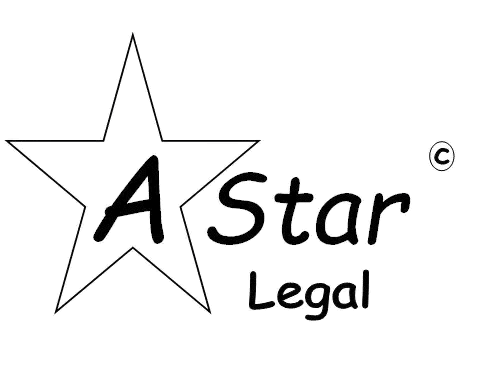Last updated on May 1st, 2025 at 05:53 am
ISO 9002 was a quality management standard that focused on ensuring product consistency and meeting customer expectations in production and service operations.
ISO 9002 was an international standard designed to ensure quality in operational processes like production and service delivery. It provides a systematic approach to maintaining consistency within the organization and also helps meet customer needs. ISO 9002 standard is no longer active but it forms the basis for modern quality systems such as ISO 9001.
ISO Certification in 24 Hours – Fast and Easy!
Contact Us Today!
Hire the Best ISO Certification Consultant Call +91 9314321001
Table of Contents
ToggleWhat is ISO 9002 Certification?
ISO 9002 is an international standard for quality management systems focused on production, installation, and servicing. It helps firms meet customer requirements through proper audits and documentation. Unlike ISO 9001, it did not include design & development. ISO 9002 was discontinued in 2000 and merged into ISO 9001.
What are the Benefits of ISO 9002?
- Improved efficiency and productivity
- Consistent quality
- Customer satisfaction
- Competitive advantage
- Enhanced management
- Continuous improvement
- Global recognition
Importance of ISO 9002
ISO 9002 ensures consistent product quality in production, installation, and servicing. It helped organizations meet customer expectations, comply with regulations, and improve efficiency through standardized processes and regular audits.
Who can take the ISO 9002?
- Manufacturers and producers
- Service providers
- Suppliers and distributors
- Small and large enterprises
What is the History of ISO 9002?
The ISO 9002 was introduced in 1987 as part of the 9000 series, providing guidelines for quality management in installation, production, and servicing. It was then finalized and revised in 1994, becoming a key standard for production quality.
In 2000, ISO 9002 was discontinued and its principles were merged into ISO 9001, which now covers all aspects of quality management. ISO 9002 had 20 sections, focused on quality in production and distribution.
Read More: ISO Certification in India
Difference between ISO 9002 and ISO 9001?
The key difference between ISO 9001 and ISO 9002 lies in their scope of coverage. ISO 9001 is a standard that includes quality guidelines for the design, production, and installation of products and services. It covers the entire product lifecycle. In contrast, ISO 9002 was focused solely on production and installation quality, excluding design and development phases.
This made ISO 9001 more inclusive, while ISO 9002 was limited, ensuring quality after the design phase. In 2000, ISO 9002 was discontinued, and its principles were merged into the broader ISO 9001 standard, which now covers all aspects of quality management.
Requirements of ISO 9002
- Quality management system
- Customer requirements
- Process control
- Documentation and records
- Corrective and preventive actions
- Continual improvement
- Training and qualification
- Inspection and testing
- Contract manufacturing
Process for ISO 9002
- Understand ISO 9002 and its requirements- Review the standard’s requirements for production, installation, and servicing quality.
- Develop a quality management system- Create a Quality Management System tailored to your organization’s process.
- Document your QMS- Clearly document all procedures and policies.
- Implement the QMS- Put the system into practice across the organization.
- Conduct internal audits- Regularly audit the system to ensure compliance and effectiveness.
- Select a certification body- Choose a certification body to apply for ISO certification and conduct the certification audit.
- Schedule and prepare for the external audit- Review processes and documentation before the audit.
- Undertake the certification audit- The certification body assesses your system for compliance.
- Receive certification- Obtain ISO 9002 certification if requirements are met.
- Continual improvement- keep improving your QMS to maintain and enhance quality.
Documents required for ISO 9002 certification
- Quality manual
- Procedures
- Work instructions
- Records
- Quality objectives and plans
- Customer feedback
- Supplier evaluation and selection
- Training records
Cost
The cost of ISO 9002 depends on-
- Size and complexity
- Certification body
- Scope of certification
- Industry type
- Consultant fee
- Internal resources
- Number of locations
- IAF accreditation
Processing time
If you are applying for ISO 9002 from A Star Legal Associates, you will get ISO 9002 within 24 hours.
Validity
3 years
Consultancy
A Star Legal Associates provides an ISO 9002 certificate in India. If you also want to enhance the quality management of your organization. then you must obtain ISO 9002 from A Star Legal Associates. For more queries, you can contact our A Star Legal Associates team.
Hire the Best ISO Certification Consultant Call +91 9314321001
Conclusion
ISO 9002 certification was commonly adopted by companies in the manufacturing sector to ensure consistent product quality. This quality management system helped organizations meet customer regulatory requirements, ensuring that their company’s goods are reliable and of high quality. Consumers often place trust in organizations or companies that have ISO 9002 certification.
FAQ
What is ISO 9002
ISO 9002 is an international standard for Quality Management System— Guidelines for the application of ISO 90021:2015.
What is the latest version of ISO 9002
The latest version of ISO 9002 is ISO 9002:2016.
When was ISO 9002 introduced?
ISO 9002 was introduced in 1987.
Who provides an ISO 9002 certificate in India
A Star Legal Associates provides ISO 9002 in India.
What is the scope of ISO 9002
ISO 9002 focused on maintaining consistent quality in manufacturing and service operations without covering product design.



